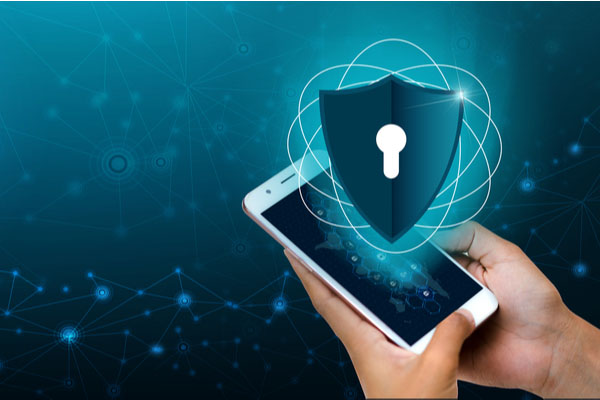Should I Check My Partner’s Phone for Cheating?

Did you know that 1 in 3 people admit to snooping on their partner’s phone or social media accounts? This surprising statistic from a YouGov survey reveals just how common this dilemma is in modern relationships. But is checking your partner’s phone really the answer to your suspicions? Let’s dive into this complex issue and explore healthier alternatives to address trust concerns in your relationship.
The Temptation to Snoop
When suspicion creeps into a relationship, the urge to check your partner’s phone can be overwhelming. But before you give in to that impulse, let’s consider the potential consequences.

1. Breach of Trust
Even if you find nothing, the act of snooping itself can damage the trust in your relationship. How would you feel if you discovered your partner had been going through your personal messages?
2. Legal Implications
In some jurisdictions, accessing someone’s phone without their permission could have legal consequences. It’s crucial to be aware of the laws in your area.
The Psychological Impact
Snooping can take a toll on your mental health. The anxiety of potentially discovering something upsetting, coupled with guilt over invading your partner’s privacy, can be emotionally draining.
Alternatives to Snooping
Instead of resorting to checking your partner’s phone, consider these healthier approaches:
3. Open Communication
Have an honest conversation with your partner about your concerns. Express your feelings without accusations and give them a chance to address your worries.
4. Self-Reflection
Take a step back and examine the root of your suspicions. Are they based on concrete evidence or personal insecurities?
When Technology Can Help
While we don’t encourage unauthorized snooping, there are legitimate ways technology can aid in addressing trust issues in relationships.
5. Mutual Transparency
Some couples choose to share passwords or use apps that allow location sharing. This mutual openness can foster trust, but it should be a joint decision, not a unilateral demand.
6. Monitoring Apps
Apps like Spynger exist that can monitor phone activities, including calls, messages, and location data. However, it’s crucial to use such technology ethically and with full consent from all parties involved. These tools should be viewed as a last resort and used only in the context of rebuilding trust with professional guidance.
The Role of Professional Help
Sometimes, the best solution is to seek outside help. A couples therapist can provide valuable insights and strategies to address trust issues in your relationship.
The Risks of Snooping
Let’s delve deeper into why checking your partner’s phone might not be the best course of action:

7. Misinterpretation
Without context, you might misinterpret innocent interactions or messages, leading to unnecessary conflict.
8. Escalation of Distrust
If you find nothing suspicious, you might be tempted to dig deeper, creating a cycle of increasing distrust and invasive behavior.
Building Trust Positively
Instead of focusing on catching your partner in a lie, try these trust-building exercises:

9. Quality Time Together
Dedicate time to reconnect with your partner. Engage in activities you both enjoy and foster positive shared experiences.
10. Practice Vulnerability
Share your own thoughts and feelings openly, encouraging your partner to do the same. This mutual vulnerability can strengthen your bond.
The Power of Empathy
Try to put yourself in your partner’s shoes. How would you want them to address their concerns if they suspected you of cheating?
When Suspicions Persist
If your gut feeling won’t subside, consider these steps:

11. Document Your Concerns
Keep a record of the behaviors or incidents that are fueling your suspicions. This can help you identify patterns and articulate your concerns more clearly.
12. Seek Individual Counseling
Sometimes, our suspicions stem from past experiences or personal insecurities. A therapist can help you work through these issues.
The Digital Age Dilemma
In an era where so much of our lives are tied to our phones, it’s natural to view them as a potential source of information about our partners. But this digital dependency can create new challenges in relationships.

13. Digital Boundaries
Discuss and establish clear boundaries around phone use and privacy in your relationship. What level of transparency are you both comfortable with?
14. Balancing Privacy and Openness
Remember that even in committed relationships, individuals are entitled to some level of privacy. The goal is to find a balance that works for both partners.
The Trust Paradox
Interestingly, research has shown that excessive monitoring can actually increase the likelihood of cheating. A study published in the journal Computers in Human Behavior found that individuals who felt their privacy was invaded were more likely to hide information from their partners.
Moving Forward
Regardless of whether you decide to check your partner’s phone or not, the key is to address the underlying trust issues in your relationship. Here are some final thoughts:

15. Prioritize Honesty
Create an environment where both you and your partner feel safe being honest, even about difficult topics.
16. Focus on Self-Growth
Work on building your self-esteem and addressing any personal insecurities that might be contributing to your trust issues.
Conclusion
In conclusion, while the temptation to check your partner’s phone when you suspect cheating can be strong, it’s rarely the best solution. Instead, focus on open communication, mutual trust-building, and addressing any underlying issues in your relationship. Remember, a healthy relationship is built on trust, respect, and open dialogue.
If you’re struggling with trust issues, don’t hesitate to seek professional help. A couples therapist can provide valuable guidance and tools to help you and your partner work through your challenges together. Ultimately, the goal is not just to alleviate your current suspicions, but to build a stronger, more trusting relationship for the long term.






